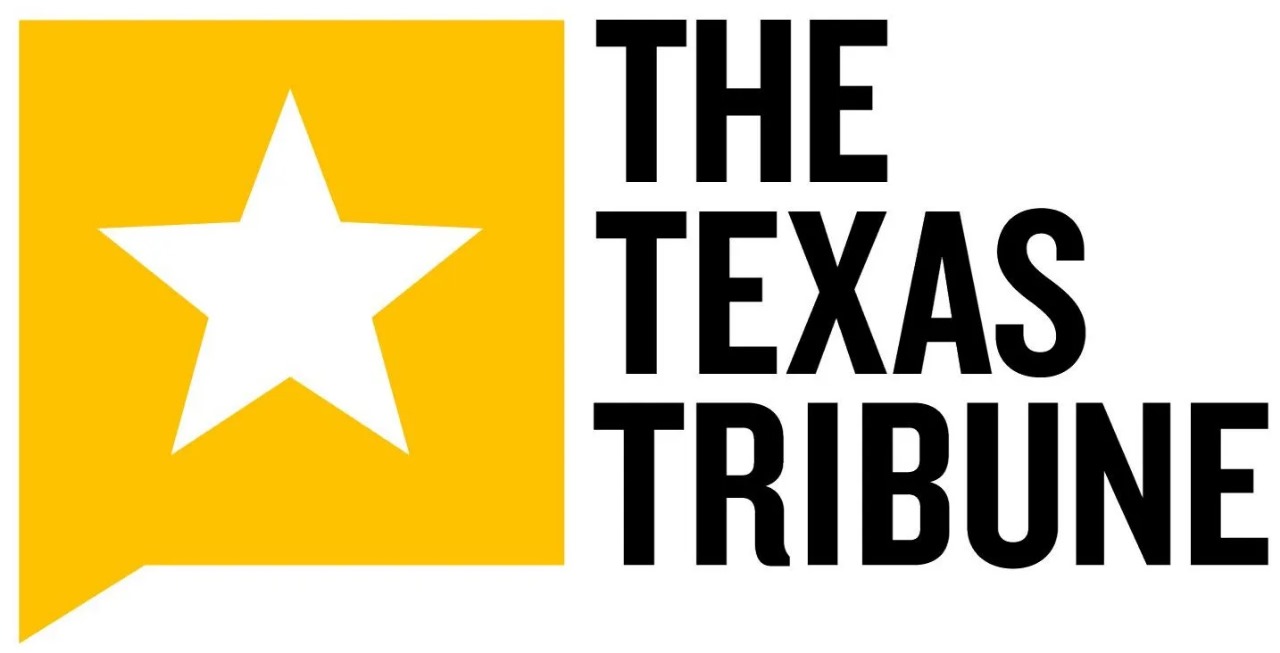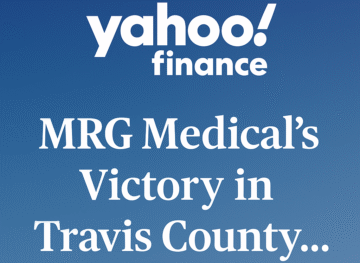Future of Texas Business Disparagement Law Rests in MRG Medical Case against Tribune/ProPublica at Texas Supreme Court
Download Case Documents
Commissioner Calvert - April 2, 2020
‘Willful and Intentional Interference’: How a Handful of San Antonio Billionaires Allegedly Took Millions in COVID Funds and Dragged a Small Business Through the Mud
About the Case
MRG Medical’s Legal Battle: A Fight for Fairness
MRG Medical is at the center of a crucial business disparagement case against The Texas Tribune and ProPublica. The case was initially upheld in a Texas District Court when 345th Travis County District Court ruled that MRG had provided strong evidence for its claim. She stated that the case was neither frivolous nor without merit.
However, The Texas Tribune and ProPublica, represented by one of Texas’ most powerful law firms, Jackson Walker, appealed the decision. The Court of Appeals then overturned the ruling, sending the case to the Texas Supreme Court for a final decision.
Allegations of Media Bias and Financial Influence
Court documents reveal that The Texas Tribune and ProPublica admitted to “willful and intentional interference”—a legal term for conspiracy. MRG claims this was done to protect wealthy donors from testifying in court.
Additionally, the documents highlight that the Tobin Foundation—a major donor to The Texas Tribune—has contributed $1.5 million to the publication. The foundation’s leadership also has ties to Community Labs, raising concerns about conflicts of interest in the case.
A Fight for Texas Businesses
MRG remains confident that, given the chance to present oral arguments and a full legal briefing, the Texas Supreme Court will rule in their favor. Small businesses across Texas are urging the Court to ensure MRG gets a fair hearing, emphasizing that every business deserves legal protection from false and misleading reports.
Why This Case Matters
MRG is a leading innovator in telemedicine and argues that Texas law should not have loopholes that protect media donors and elite law firms. The company warns that without proper legal safeguards, any small business could be unfairly attacked by well-funded media and legal entities.
The outcome of this case will set a precedent for how Texas businesses are treated under the law. Will corporate media and their donors hold more power than the legal rights of business owners? MRG is fighting to ensure that fairness, truth, and justice prevail.
Willful and Intentional Interference
FDA Authorization Ignored
According to the court transcript, MRG’s lawyers stated that the article falsely implied that MRG was utilizing tests that were unauthorized for use by the FDA. However, MRG’s legal counsel submitted proof of FDA authorization to the reporters, including correspondence with the FDA, outlining why MDBox and MRG’s stated use of the tests was “in compliance with the FDA guidelines.” By August, the Tribune and ProPublica reporters had been made aware that MD Box and MRG were “not even using the Wondfo tests anymore.”Financial Ties to the Media
$1.5 million has been donated to the Texas Tribune by the Tobin Foundation. MRG says the co-founders of Community Labs also sit on or lead that foundation, creating a conflict of interest that allegedly harmed MRG.Community Labs: “Nonprofit” Status Questioned
Community Labs held itself out as a “nonprofit,” yet a search of Texas and IRS tax-exempt entities named “Community Labs” reveals no hits. Shortly after the disputed article, Bexar County allocated millions of dollars to Community Labs, while MRG did not receive a dollar in government funds prior to the publication.MRG’s Relationship with Commissioner Calvert
MRG says the article falsely implied “financial impropriety” by juxtaposing a mention of Commissioner Calvert’s trip expenses without clarifying that he paid for them himself. 345th Travis County District Court noted, “People are free to go on trips with contractors” and argued, “It wasn’t illegal for him to go on the trip. It wasn’t illegal for him to go to the Kentucky Derby if…he paid his entire trip himself.”MRG alleges that the co-conspirators hatched a plan to enter the testing and telehealth markets through politics rather than innovation, culminating in the founding of Community Labs, LLC on September 16, 2020.
Just nine days later, the Tribune and ProPublica published the article that MRG says is “false and misleading.”
Less than two weeks after publication, the Bexar County Commissioners Court gave Community Labs the entire two million dollars of its testing funds.
Later, Community Labs received an additional $305,000 and $1,000,000, and then in April 2021, Bexar County approved a new $4,000,000 budget for their services.
MRG’s Canceled Contracts
MRG provided multiple canceled contracts and affidavits proving that clients refused to do business with them after the article.
Appeals Court Reversal and the “Manufacturing” Issue
The Third Court of Appeals reversed the trial court’s denial of the Texas Tribune’s and ProPublica’s Motion to Dismiss “because MRG Medical never manufactured COVID tests.”
MRG argues that this rationale is irrelevant to a business disparagement claim and that the appellate opinion overlooked the implication and gist claims on which the trial court relied.
The opinion’s introduction also contained factual inaccuracies, including an assertion that “No Local Governments ultimately purchased tests from Reliant,” even though evidence showed actual agreements with local government entities.
Statements About “Unauthorized or Illegal COVID Tests”
MRG notes that by August, Tribune and ProPublica reporters were aware MRG was “not even using the Wondfo tests anymore.”
An FDA official even responded to one reporter’s questions by calling them “misleading.”
Despite this, the article portrayed a scenario suggesting MRG was operating a get-rich-quick scheme.
The plaintiff’s lawyer showed how a quote from Hays County Judge Becerra about “never use FDA unauthorized or illegal COVID tests” was used to make “disparaging implications,” even though Judge Becerra later clarified he was “not referring to MRG” and had been given erroneous information.
Implications for Texas Businesses
If the Texas Supreme Court does not grant MRG’s petition of review, the Court of Appeals’ opinion—based primarily on the notion that “MRG did not manufacture the COVID-tests”—will stand, setting what MRG calls a bad precedent. At minimum, MRG says the Supreme Court should let them present their full case, to show that the Texas Legislature did not write the law on disparagement to have exceptions for wealthy media donors and their well-connected law firms







